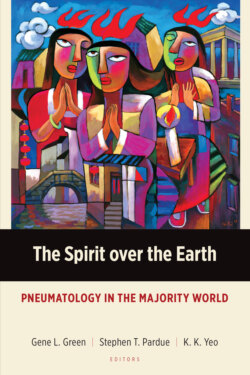Читать книгу The Spirit over the Earth - Группа авторов - Страница 6
На сайте Литреса книга снята с продажи.
Contemporary Western and Majority World Developments in Pneumatology
ОглавлениеUntil recently, Western theology has focused more on Christology and less on the person and work of the Holy Spirit. A turning point came with the rise of Pentecostalism at the start of the twentieth century and Vatican II (1962–65). The renewed emphasis among Roman Catholics falls on the Spirit’s work within the church. Lumen gentium begins its ecclesiological reflection stating, “Christ is the Light of nations. Because this is so, this Sacred Synod gathered together in the Holy Spirit eagerly desires, by proclaiming the Gospel to every creature, to bring the light of Christ to all men, a light brightly visible on the countenance of the Church.” On the Protestant side, the rise of Pentecostalism in North America and globally has brought with it laser-focused attention on the empowerment that comes through the Spirit of God that enables the church to fulfill its role as witness in the world (Acts 1:8). Out of this movement arose a number of notable North Atlantic Pentecostal scholars, including Gordon Fee, Russell Spittler, and Frank Macchia, who emphasize God’s presence and power through the Spirit.[6] Non-Pentecostal theologians, such as George-Yves Congar, Jürgen Moltmann, and Wolfhart Pannenberg, have also been deeply concerned with the Holy Spirit and ecclesiology, renewal, and especially life in all its forms.[7]
Unsurprisingly, the church in the Majority Word has begun renewed reflections on the role of the Holy Spirit in the church and in the world. The church in the Majority World is “self-theologizing.” That is, it recognizes its responsibility as part of “one holy catholic and apostolic church” to make its own contribution to the universal or Catholic discussion about theology that has unfolded through the ages within the Western and Eastern churches. From within Africa, Christian theologians have embraced a theology of the Spirit that underscores the way he confronts other spiritual powers in the world. The Holy Spirit is part of a power-encounter that finds few parallels in the West where the church has, at times, forgotten Paul’s statement that “our struggle is not against flesh and blood, but against the rulers, against the authorities, against the powers of this dark world and against the spiritual forces of evil in the heavenly realms” (Eph. 6:12).
Within Asian theologies, the Holy Spirit is not separated from the material world as is common in Western theology but is the primary essence of reality. Instead of opposing dichotomies, the Spirit is not outside the world but is “the complementary pair of yin and yang” that organizes all things.[8] Questions about the role of the Holy Spirit within the complex of religions in Asia is another concern that occupies Asian theologians. In Latin American theology, the place of the Spirit in the community and the social implications of his presence are topics of concern. Although the role of the Spirit in personal transformation and empowerment for ministry receives prime attention within Latin American Pentecostalism, the social dimension of the Spirit’s work receives attention among theologians who face the socioeconomic injustices of the region. The church in the Majority World is self-theologizing, and this is abundantly evident in the development of contemporary pneumatology.
